Are you looking to strengthen your team's commitment to a smoke-free environment? Implementing a robust smoking policy is essential for promoting health and well-being in the workplace. In this article, we'll explore effective strategies for enforcing smoking policies that not only comply with regulations but also foster a supportive atmosphere for all employees. Stick around to discover how you can create a healthier workspace for everyone!

Clear policy definition and scope
The smoking policy at XYZ Corporation enforces a strict prohibition against smoking within all indoor facilities, including offices, restrooms, hallways, and conference rooms. This policy extends to all outdoor spaces within a designated radius of 25 feet from entrances, windows, and ventilation systems to ensure a smoke-free environment. Employees, visitors, and contractors are subject to this policy, which aims to promote health and wellness, reduce exposure to secondhand smoke, and comply with local regulations such as the Clean Air Act. Violations of this policy may result in disciplinary action ranging from verbal warnings to termination, depending on the severity and frequency of infractions. Compliance officers will conduct regular inspections to ensure adherence, fostering a healthier workplace for all.
Compliance requirements and expectations
Effective smoking policy enforcement is crucial for maintaining a healthy workplace environment. Employers must ensure compliance with local regulations, such as the Smoke-Free Air Act, which prohibits smoking in enclosed public spaces. Clear expectations should be established regarding designated smoking areas (typically 25 feet from entrances, exits, and windows) and the prohibition of smoking inside company vehicles. Regular training sessions should be conducted for employees to reinforce the importance of adherence, emphasizing the adverse health effects of secondhand smoke exposure. Signed acknowledgement forms can be implemented to ensure understanding and commitment to the policy. Violation consequences, including fines or disciplinary actions, must be clearly communicated to promote accountability.
Consequences of policy violation
Violations of the smoking policy can lead to significant consequences within the workplace environment. First offenses typically result in a formal written warning, detailing the specifics of the violation and reminding the employee of the policy regulations in place. Repeated infractions, for instance, a second violation within a 12-month period, may lead to mandatory attendance at a training session regarding the health impacts of smoking and proper adherence to company policies. More severe repercussions could include suspension without pay for continued non-compliance, particularly if violations occur in sensitive areas such as designated smoke-free zones within corporate campuses. Ultimately, persistent disregard for the smoking policy may result in termination of employment, emphasizing the company's commitment to maintaining a healthy and safe working environment for all employees and visitors.
Support resources for cessation
Smoking policies in workplaces play a crucial role in promoting a healthier environment. Many organizations, including healthcare facilities, educational institutions, and corporate offices, enforce strict smoking regulations to reduce the harmful effects of tobacco use on employees and visitors. Resources for cessation, such as counseling services, nicotine replacement therapy options, and online support groups, are vital in assisting individuals who wish to quit smoking. Programs related to smoking cessation may include access to hotlines, mobile applications, personalized quit plans, and support workshops. Research indicates that comprehensive support can increase the likelihood of successfully quitting smoking by up to 60%. Therefore, implementing effective cessation resources not only fosters compliance with smoking policies but also contributes positively to overall public health.
Contact information for questions or concerns
The smoking policy enforcement measures outlined by various organizations can significantly impact workplace health. Businesses often designate specific contact information, typically including a phone number and email address, for individuals with inquiries or concerns regarding smoking regulations. For instance, the HR department's contact, such as 555-0123, might serve as a primary resource for employees needing clarification on designated smoking areas, cessation programs, or reporting violations. Furthermore, organizations might establish a dedicated email, like smokepolicy@companyname.com, to streamline communication regarding compliance and enforcement of the smoking policy, ensuring a healthy environment for all staff members.

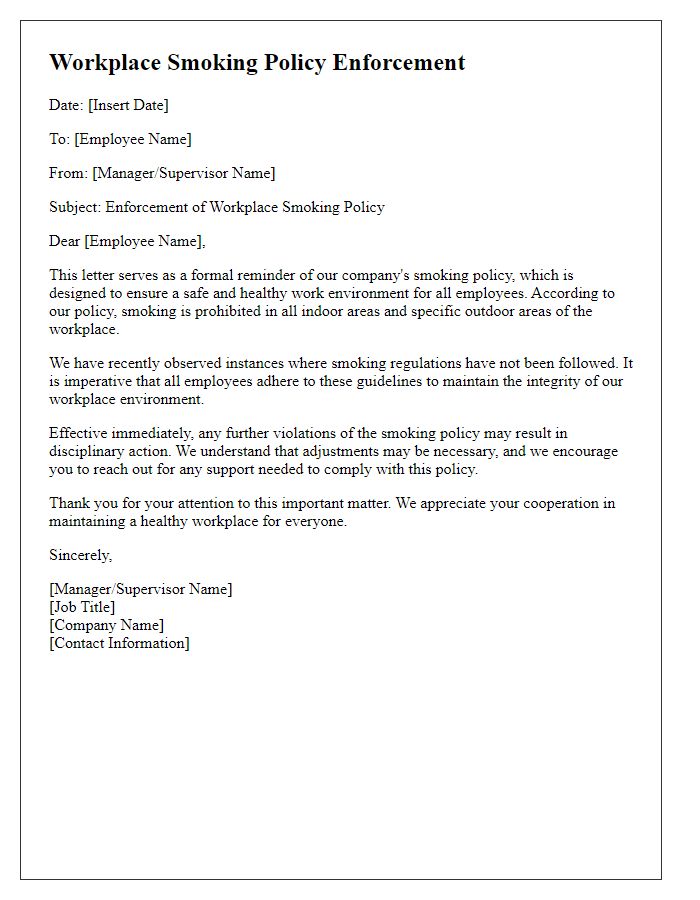
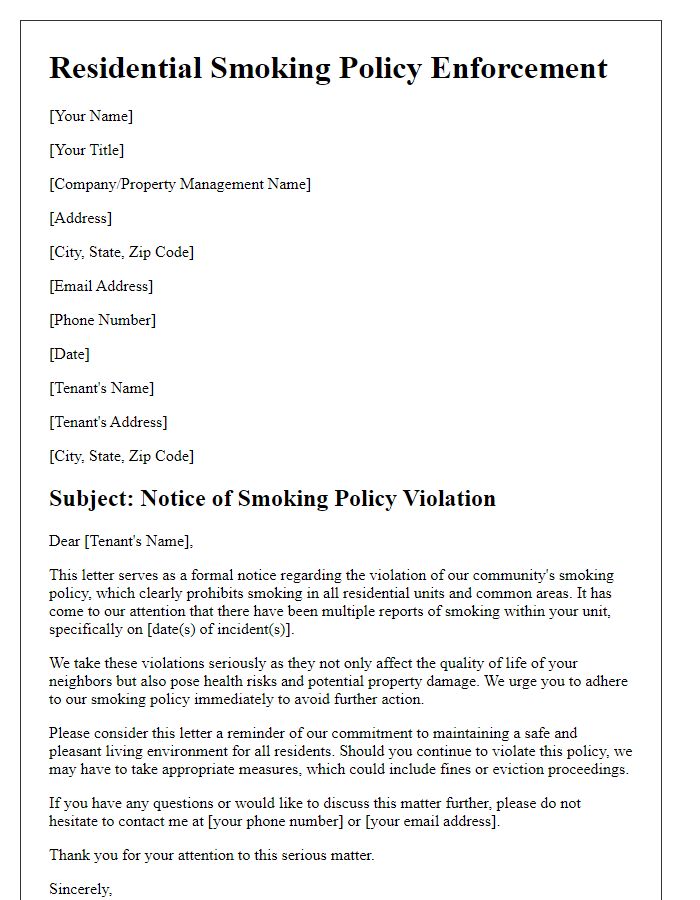
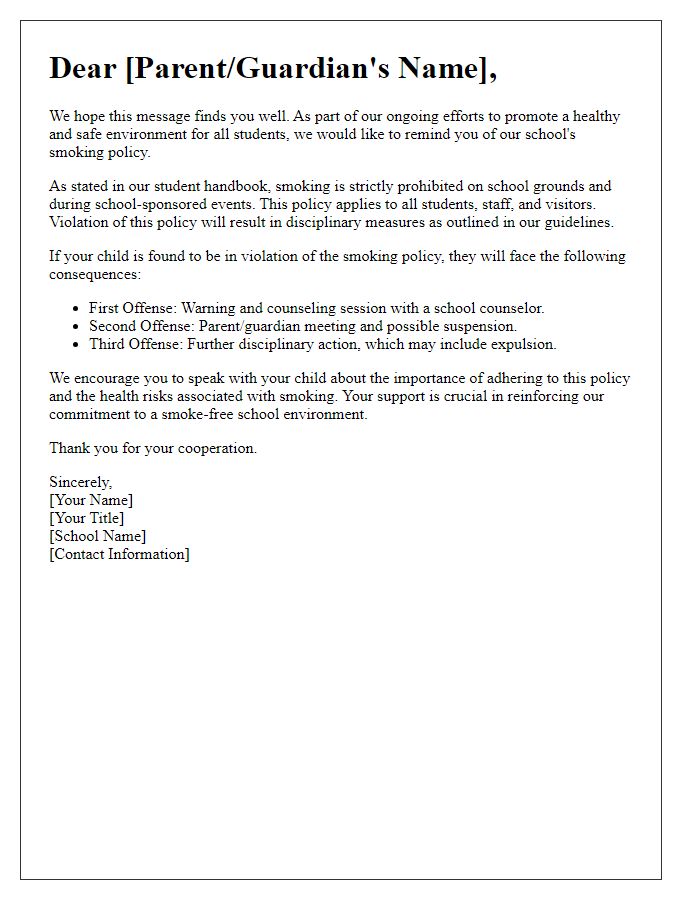
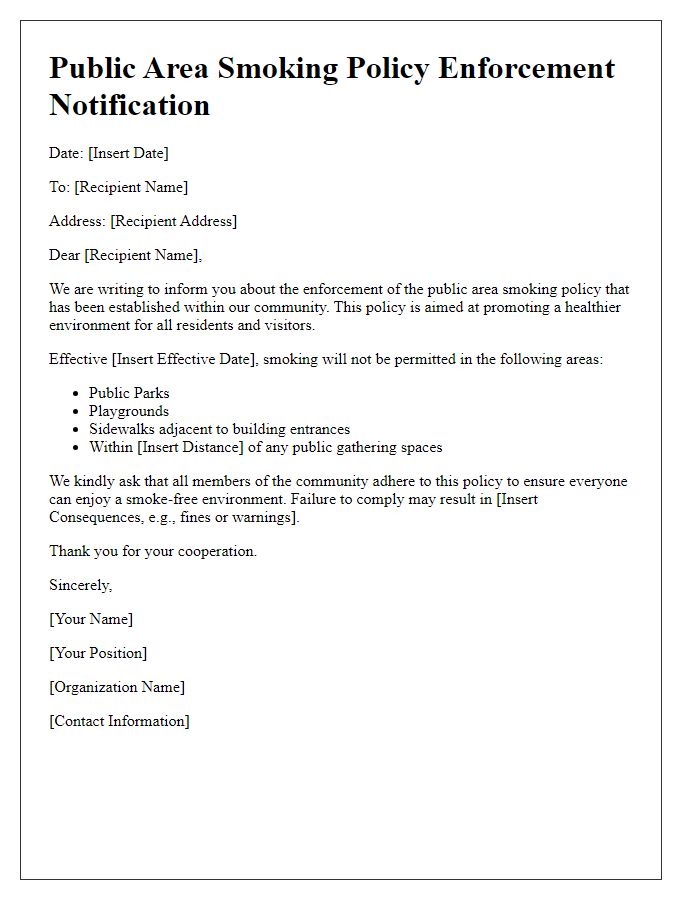
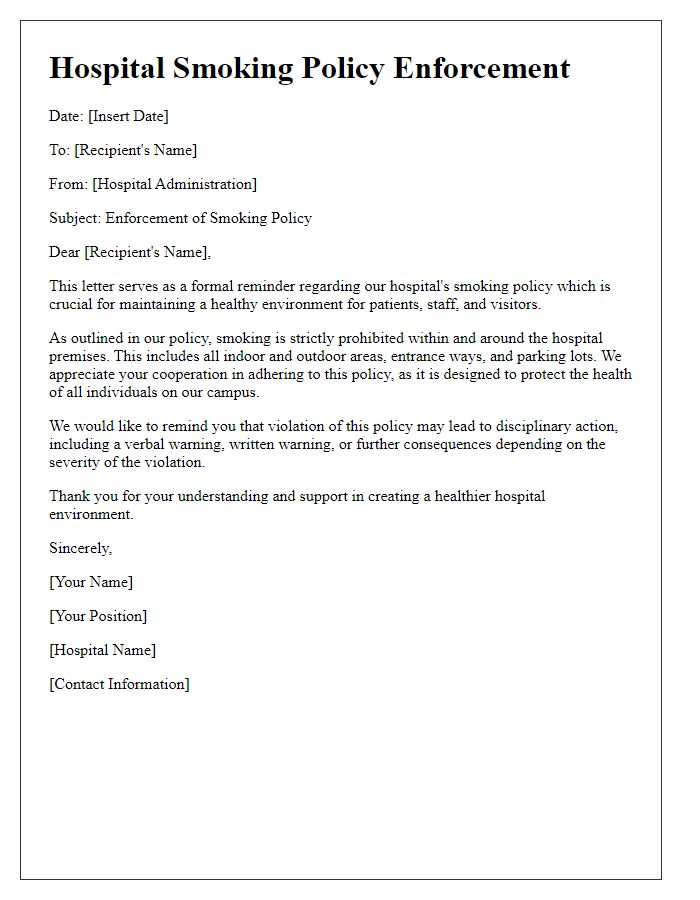
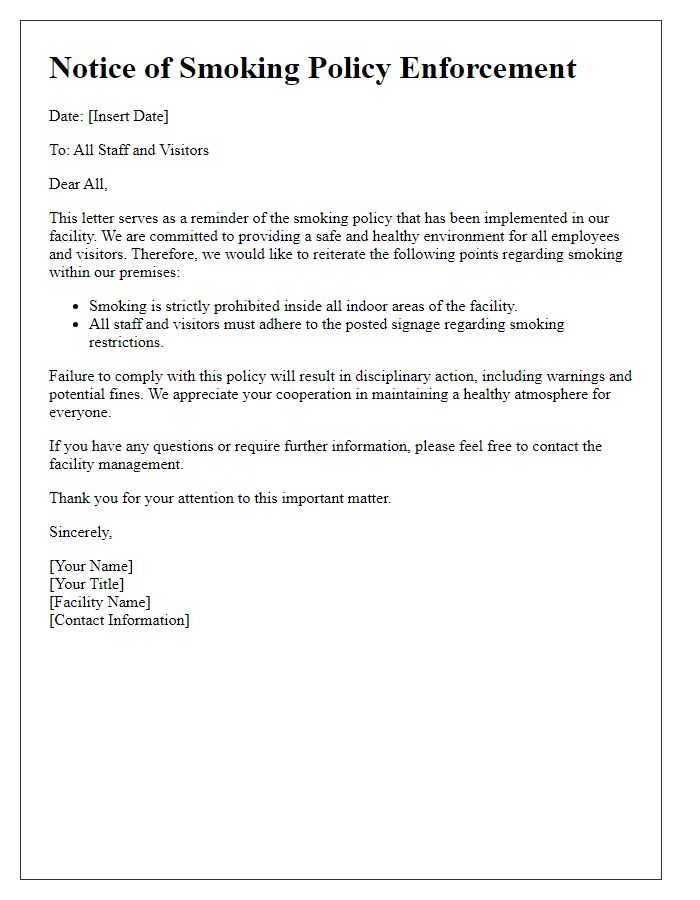
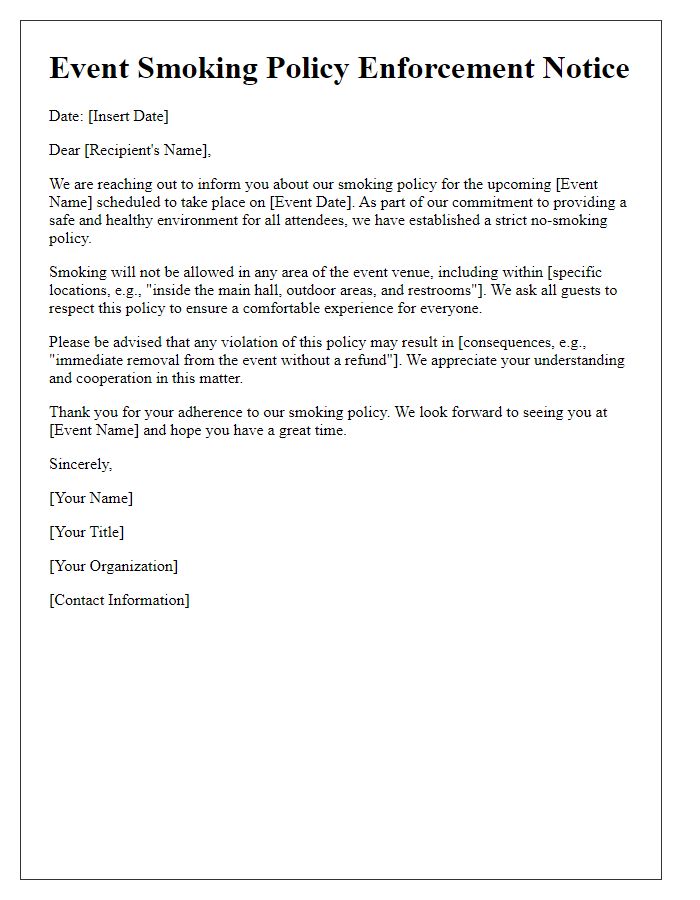
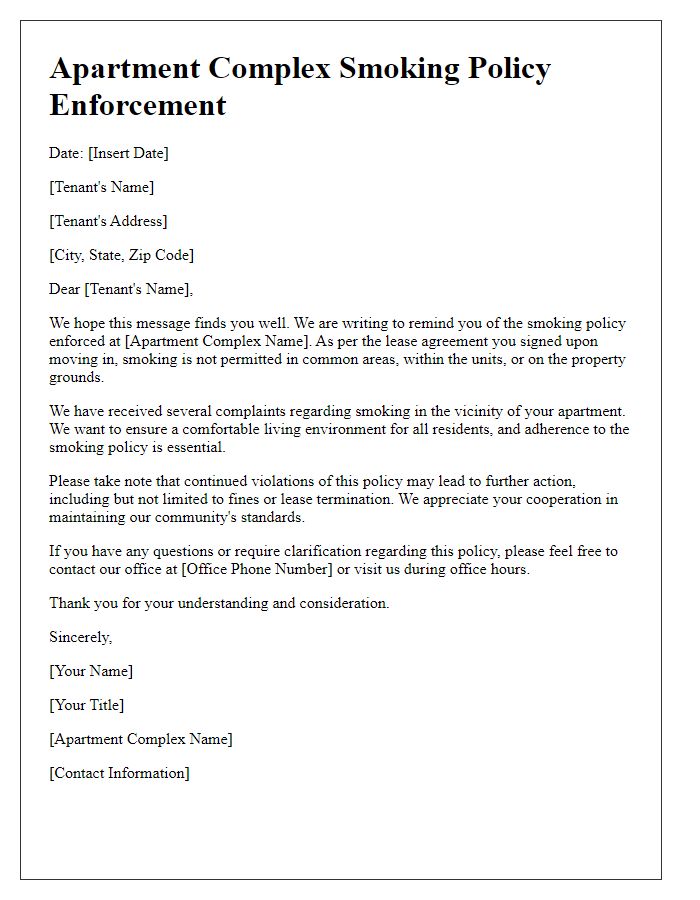
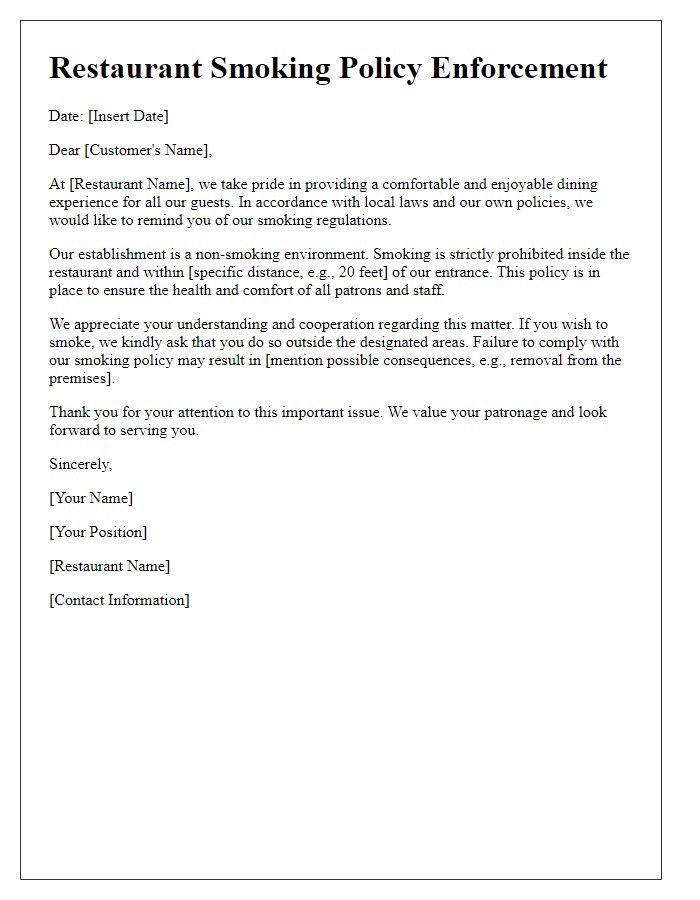
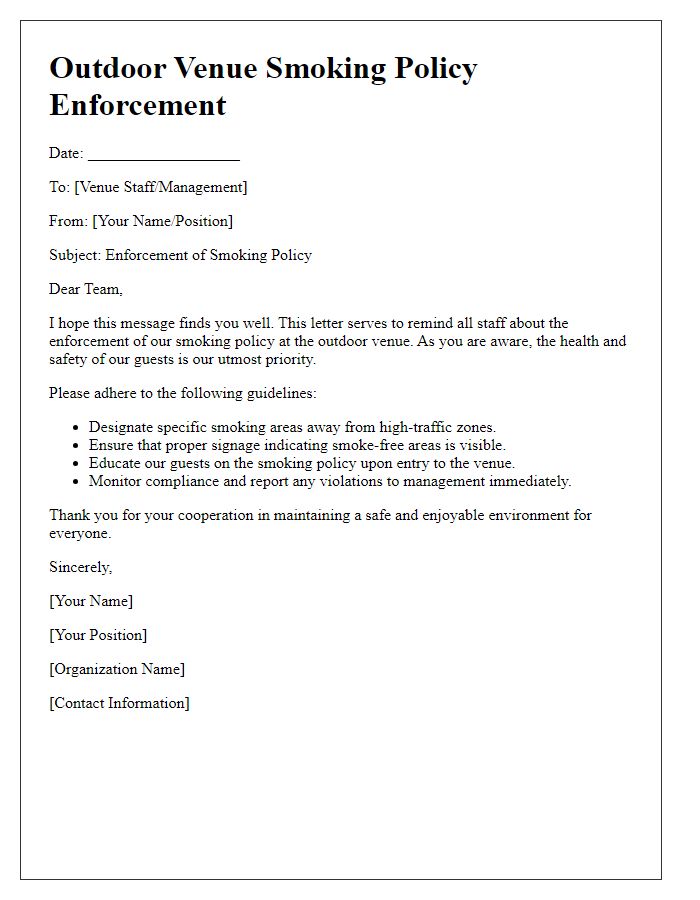


Comments